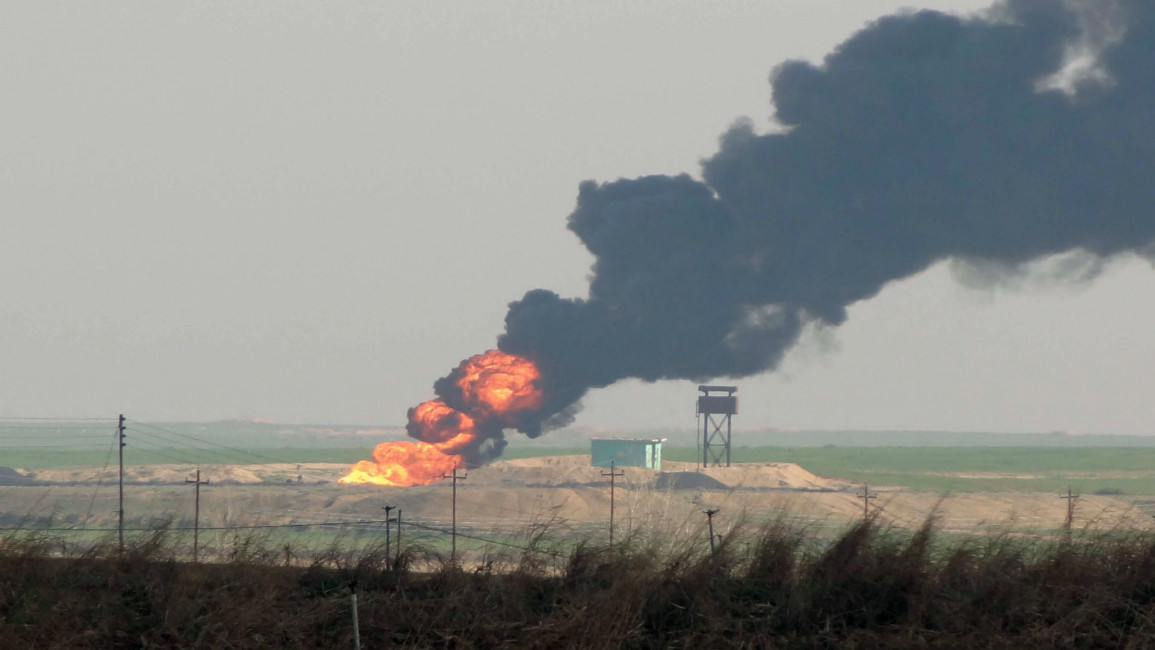Coalition airstrikes have 'nearly halved' Islamic State oil revenues
Airstrikes targeting oil facilities controlled by the Islamic State (IS) in Syria and Iraq have greatly eroded the group's production capabilities and almost halted exports, French industry experts have told a French parliamentary committee.
Francis Perrin, head of the French company Energy Strategies and Policies, and Francis Duseux, president of the French Union of Oil Industries, estimated on Tuesday that IS was now producing between 10,000 and 30,000 barrels a day compared to double that amount in mid-2014.
Duseux described IS's situation in Syria as "critical" because it was no longer able to even meet the fuel needs for its war against the regime of President Bashar al-Assad.
"The airstrikes by the US-led coalition have had a big effect, especially since the launch of Tidal Wave II in autumn 2015," Perrin told a French parliamentary committee hearing held on Tuesday.
"It specifically targeted oil facilities, drilling rigs, pumps, wells in certain cases, refineries and mini-refineries, oil pipelines and tankers, storage facilities and collection points," Perrin said.
"Daesh's entire oil supply line is targeted," he added, using an Arabic acronym for IS.
"Its oil revenues have therefore sharply declined since the summer of 2014," Perrin added.
The fall in global oil prices had also bitten hard, and the militants had difficulty repairing or maintaining facilities hit in airstrikes, the expert said.
"Today, these profits are likely to be far lower than what is often given. It's probably not more than $400 million a year, probably less."
Francis Duseux told the parliamentary committee that production was down as low as 10,000 barrels a day and that IS was no longer able to export from Syria at all.
"The local information that we have is that Daesh's production has decreased considerably. We estimate they are now turning out about 10,000 barrels a day," he said.
"We believe that Daesh can no longer export anything from Syria," Duseux added.
"We get the impression that they are having difficulties even meeting their needs for the war, [and] those of the local population that they are controlling. So their situation is critical."
The Pentagon said in January that the campaign of airstrikes had reduced the IS group's oil-producing capacity by 30 percent compared to October 2015.



